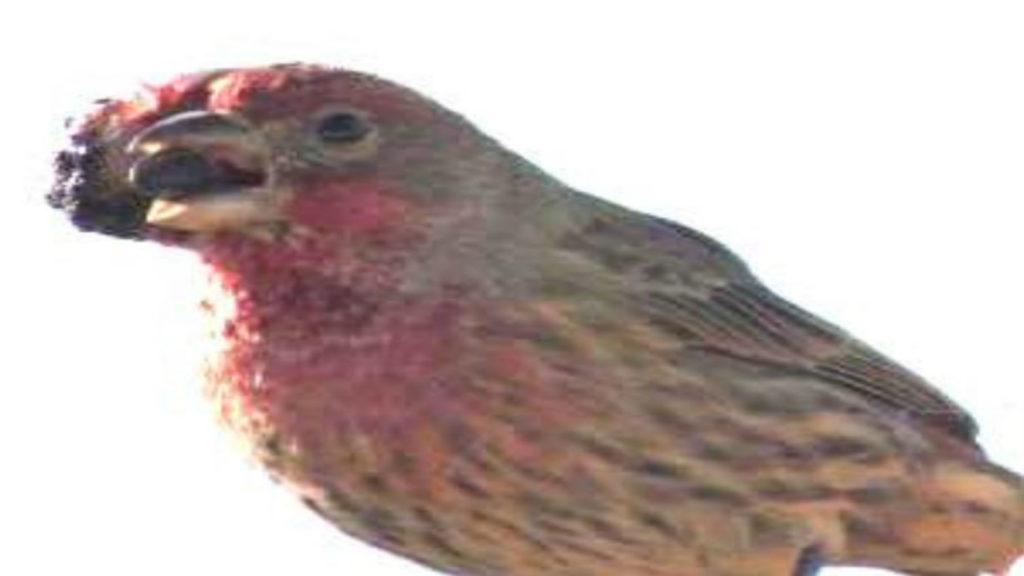
COLORADO – A recent observation of birds with swollen, crusty eyes in the Montrose area set off alarms for Colorado Parks and Wildlife biologists.
The biologists noticed birds called house finches with swollen, crusty eyes and are concerned about a disease called house-finch eye disease.
According to CPW, the disease, also called mycoplasmal conjunctivitis, is slowly spreading across the U.S. and Colorado birds are at risk.
CPW said the disease has not yet been confirmed in Colorado, but the agency wants to warn people that house finch eye disease, along with several others are commonly spread at dirty bird feeders and baths. The other diseases include salmonellosis, trichomoniasis, avian pox, pigeon paramyxovirus, and aspergillosis.
“Watching birds at feeders, especially during the winter, is a great way to enjoy and learn about the beauty of nature,” said Karen Fox, wildlife pathologist for Colorado Parks and Wildlife. “Unfortunately, bird feeders and bird baths can quickly become contaminated with bacteria, viruses, parasites, and fungi if visited by sick birds. These germs are then spread to other healthy birds visiting the same feeders. Crowding of birds makes it even easier for germs to spread and large numbers of birds can become sick and even die.”
According to CPW, most bird feeders should be cleaned at least once a month, and bird baths at least once a week. Feeders that allow birds to walk on and thus defecate on require more frequent cleaning in order to prevent the spread of bacteria like Salmonella.
CPW offers the following tips for those with bird feeders:
- Clean feeders at least once a month. Feeders can be washed in the dishwasher or with soapy water; rinse with diluted bleach solution ‒ nine parts water to one part bleach.
- Clean bird baths and provide clean, fresh water at least once a week.
- Be sure to dry feeders thoroughly before refilling; always dispose of any feed that gets wet.
- Use multiple feeders and space them widely to prevent birds from crowding.
- Sweep or rake-up debris and droppings below feeders so that birds don’t come in contact with waste material. Do not spread seed on the ground.
- If you see diseased birds, take down your feeders for at least two weeks; then clean feeders thoroughly prior to replacing seed.
- Wear gloves when handling feeders and wash hands afterward. Some diseases, such as salmonellosis, can cause illness in humans and domestic animals.
- Pets should never be allowed to play with or consume sick or dead birds.
- Please contact the nearest Colorado Parks and Wildlife office if you observe sick or dead birds at your feeders.

